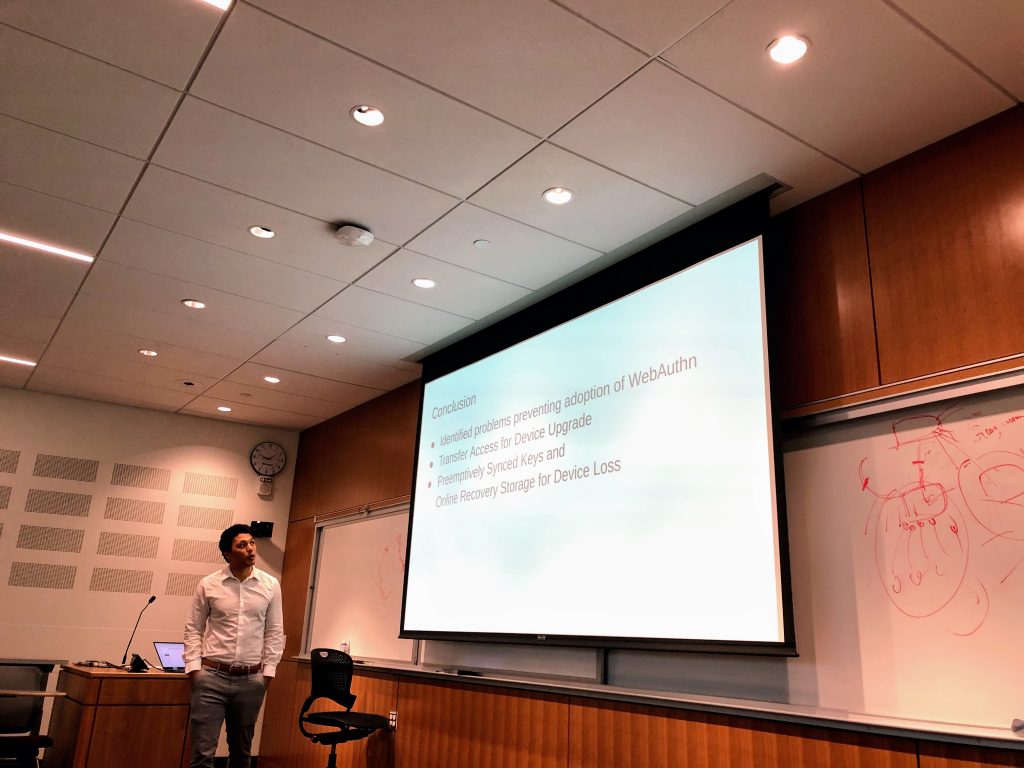Welcome Miranda!

The Security and Privacy Research Lab is excited to welcome new PhD student Miranda Wei! Prior to starting her PhD, Miranda worked with Blase Ur at the University of Chicago.
Security and Privacy Research Lab
Paul G. Allen School of Computer Science & Engineering, University of Washington

The Security and Privacy Research Lab is excited to welcome new PhD student Miranda Wei! Prior to starting her PhD, Miranda worked with Blase Ur at the University of Chicago.
This has been a very productive and busy summer for the UW Allen School Security and Privacy Research Lab! To celebrate the end of summer, the lab ventured on an outing to “Molly Moon’s Homemade Ice Cream”, a short walk from our building. It was a beautiful day, and great ice cream! 🙂

Visiting Cal Poly undergraduate Henry Bowman presented his summer project final presentation at today’s Security Lab meeting, before returning to Cal Poly to finish his Bachelors Degree.
Henry’s work focused on problems related to augmented reality, computer security, and privacy. As part of his summer project, Henry contributed to the Security Lab’s ShareAR project. ShareAR, or the Secure and Private AR Sharing Toolkit, is a project developed by Security Lab member Kimberly Ruth with faculty members Franzi and Yoshi and that enables the secure and private sharing of holographic HoloLens objects with others users. Allen School undergraduate student AJ Kruse also contributed to the project this summer. To learn more about the project, see Kimberly’s 2019 USENIX Security paper and talk.
Great job Henry, and great talk!

(Cross-posted from UW News, by Sarah McQuate)

For now, augmented reality remains mostly a solo activity, but soon people might be using the technology in groups for collaborating on work or creative projects.
A few summers ago throngs of people began using the Pokemon Go app, the first mass-market augmented reality game, to collect virtual creatures hiding in the physical world.
For now, AR remains mostly a solo activity, but soon people might be using the technology for a variety of group activities, such as playing multi-user games or collaborating on work or creative projects. But how can developers guard against bad actors who try to hijack these experiences, and prevent privacy breaches in environments that span digital and physical space?
University of Washington security researchers have developed ShareAR, a toolkit that lets app developers build in collaborative and interactive features without sacrificing their users’ privacy and security. The researchers presented their findings Aug. 14 at the USENIX Security Symposium in Santa Clara, California.
“A key role for computer security and privacy research is to anticipate and address future risks in emerging technologies,” said co-author Franziska Roesner, an assistant professor in the Paul G. Allen School of Computer Science & Engineering. “It is becoming clear that multi-user AR has a lot of potential, but there has not been a systematic approach to addressing the possible security and privacy issues that will arise.”
Sharing virtual objects in AR is in some ways like sharing files on a cloud-based platform like Google Drive — but there’s a big difference.
“AR content isn’t confined to a screen like a Google Doc is. It’s embedded into the physical world you see around you,” said first author Kimberly Ruth, a UW undergraduate student in the Allen School. “That means there are security and privacy considerations that are unique to AR.”
For example, people could potentially add virtual inappropriate images to physical public parks, scrawl virtual offensive messages on places of worship or even place a virtual “kick me” sign on an unsuspecting user’s back.
“We wanted to think about how the technology should respond when a person tries to harass or spy on others, or tries to steal or vandalize other users’ AR content,” Ruth said. “But we also don’t want to shut down the positive aspects of being able to share content using AR technologies, and we don’t want to force developers to choose between functionality and security.”
To address these concerns, the team created a prototype toolkit, ShareAR, for the Microsoft HoloLens. ShareAR helps applications create, share and keep track of objects that users share with each other.
Another potential issue with multi-user AR is that developers need a way to signal the physical location of someone’s private virtual content to keep other users from accidentally standing in between that person and their work — like standing between someone and the TV. So the team developed “ghost objects” for ShareAR.
“A ghost object serves as a placeholder for another virtual object. It has the same physical location and rough 3D bulk as the object it stands in for, but it doesn’t show any of the sensitive information that the original object contains,” Ruth said. “The benefit of this approach over putting up a virtual wall is that, if I’m interacting with a virtual private messaging window, another person in the room can’t sneak up behind me and peer over my shoulder to see what I’m typing — they always see the same placeholder from any angle.”
The team tested ShareAR with three case study apps. Creating objects and changing permission settings within the apps were the most computationally expensive actions. But, even when the researchers tried to stress out the system with large numbers of users and shared objects, ShareAR took no longer than 5 milliseconds to complete a task. In most cases, it took less than 1 millisecond.

The team tested ShareAR with three case study apps: Cubist Art (top panel), which lets users create and share virtual artwork with each other; Doc Edit (bottom left panel), which lets users create virtual notes or lists they can share or keep private; and Paintball (bottom right panel), which lets users play paintball with virtual paint. In the Doc Edit app, the semi-transparent gray box in the top left corner represents a “ghost object,” or a document that another user wishes to remain private.Ruth et al./USENIX Security Symposium
Developers can now download ShareAR to use for their own HoloLens apps.
“We’ll be very interested in hearing feedback from developers on what’s working well for them and what they’d like to see improved,” Ruth said. “We believe that engaging with technology builders while AR is still in development is the key to tackling these security and privacy challenges before they become widespread.”
Tadayoshi Kohno, a professor in the Allen School, is also a co-author on this paper. This research was funded by the National Science Foundation and the Washington Research Foundation.
Learn more about the UW Security & Privacy Lab and its role in the space of computer security and privacy for augmented reality.
###
For more information, contact Roesner at franzi@cs.washington.edu, Ruth at kcr32@cs.washington.edu and Kohno at yoshi@cs.washington.edu.
Grant numbers: CNS-1513584, CNS-1565252, CNS-1651230
While at USENIX Security 2019, we were fortunate to snap a photo of a significant fraction of the current Security Lab as well as Security Lab and other alumni wearing our purple Allen School shirts!
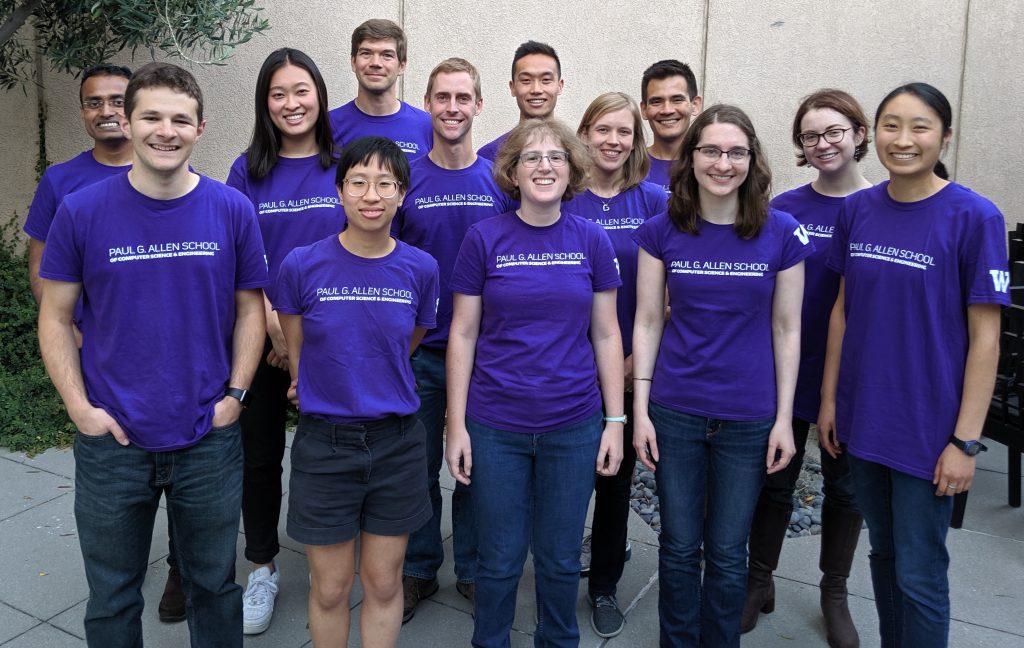
The UW Security and Privacy Lab, and the lab’s friends and alumni, were out in force at USENIX Security 2019. On Wednesday, current UW Security and Privacy Lab members presented three papers in the same session:
Below are photos from each of the above talks, as well as from UW Systems Lab alumnus Charlie Reis‘s talk’s (with alumnus Alex Moshchuk) on “Site Isolation: Process Separation for Web Sites within the Browser” and Ivan Evtimov‘s talk on a new smarthome security lab (URL forthcoming).
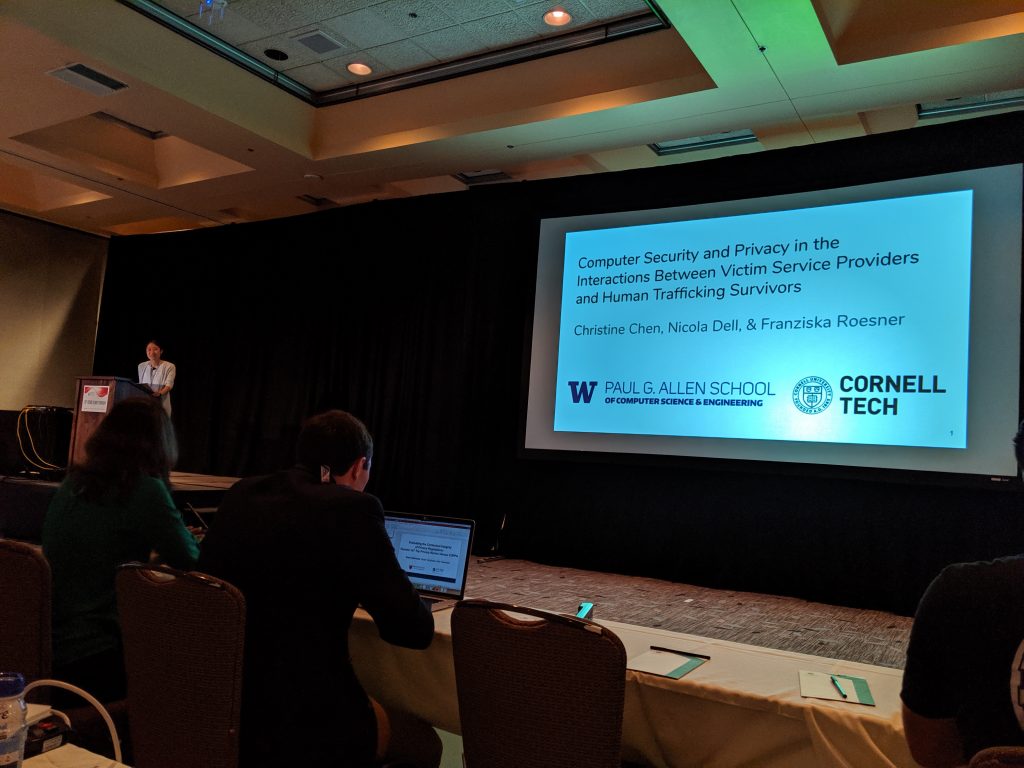
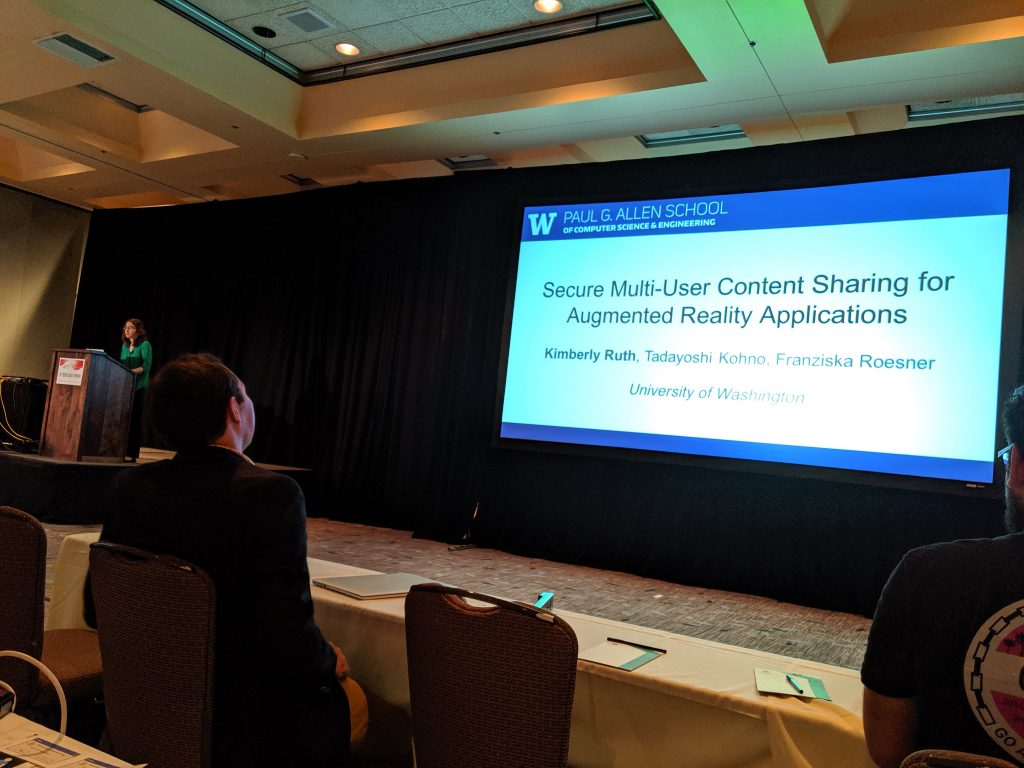
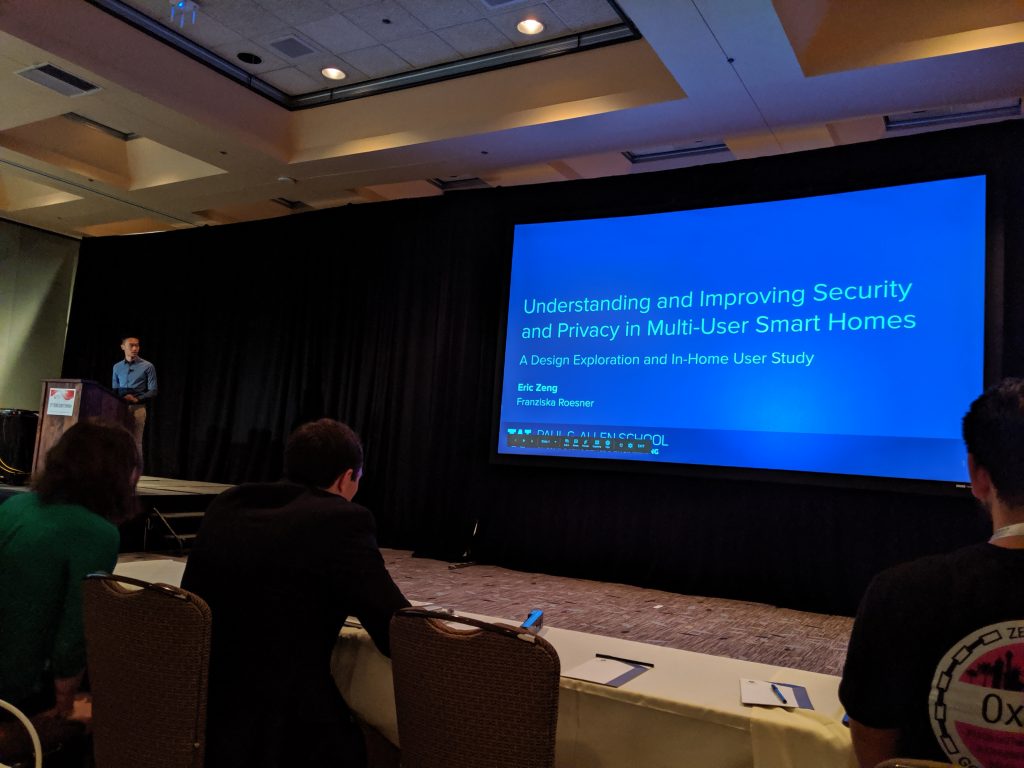
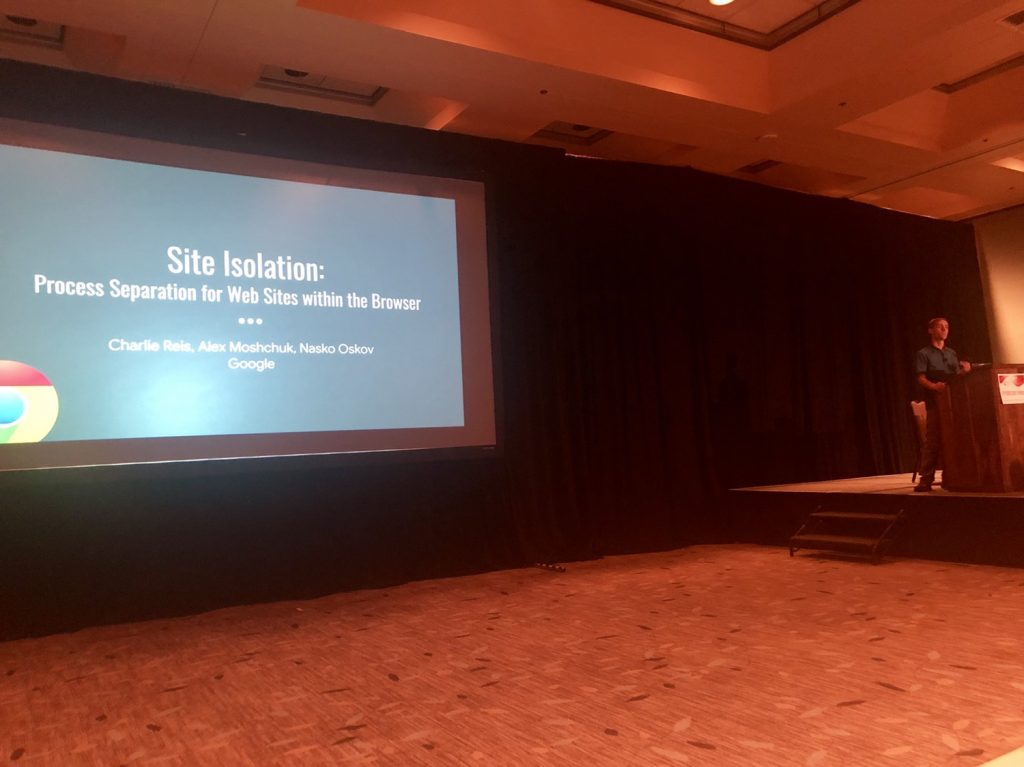
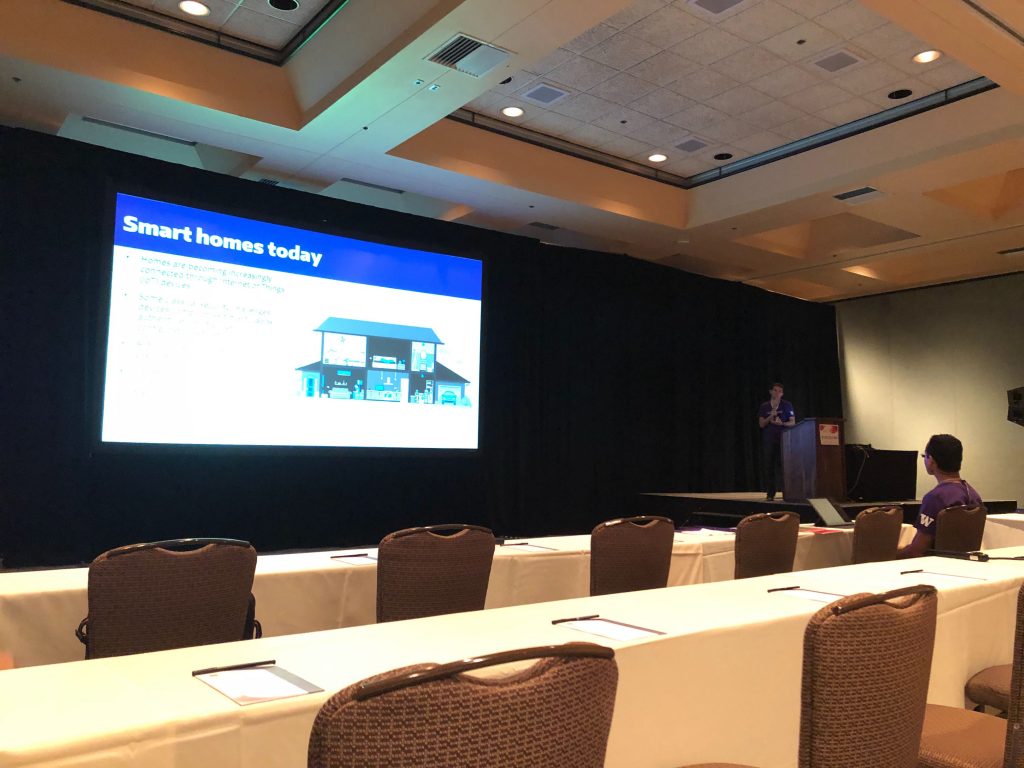
Congratulations to UW Security and Privacy lab member Christine Chen, advised by Prof. Franzi Roesner, and collaborator (and UW alumnae) Nicki Dell for winning a Distinguished Paper Award at USENIX Security 2019! USENIX Security is one of the top peer-reviewed conferences in computer security, and this is an incredible honor. The authors are also extremely grateful to the people who participated in their study and for the opportunity to share those voices with the computer security and privacy community.
Read their paper on “Computer Security and Privacy in the Interactions Between Victim Service Providers and Human Trafficking Survivors” here.
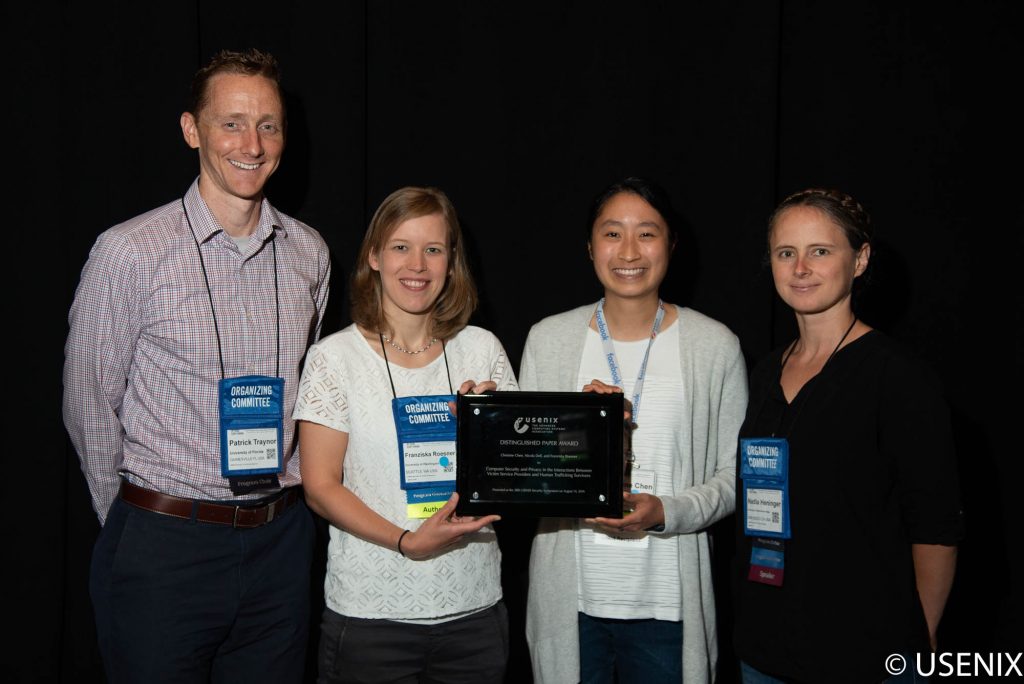
In 2018, UW Security and Privacy Lab members Ivan Evtimov and Earlence Fernandes (now faculty at Wisconsin), along with UW Prof. Yoshi Kohno and researchers from Samsung Research North America, Stanford University, Stony Brook University, University of California at Berkeley, and University of Michigan , wrote a now widely sited paper on fooling computer vision classifiers and, in doing so, demonstrated the ability to fool a machine learning system into misidentifying a stop sign as, say, a speed limit sign.
The Science Museum in London asked to include the UW Stop Sign in their exhibit titled “Driverless: Who is in Control?”. If you’re in London, please stop by and check it out!
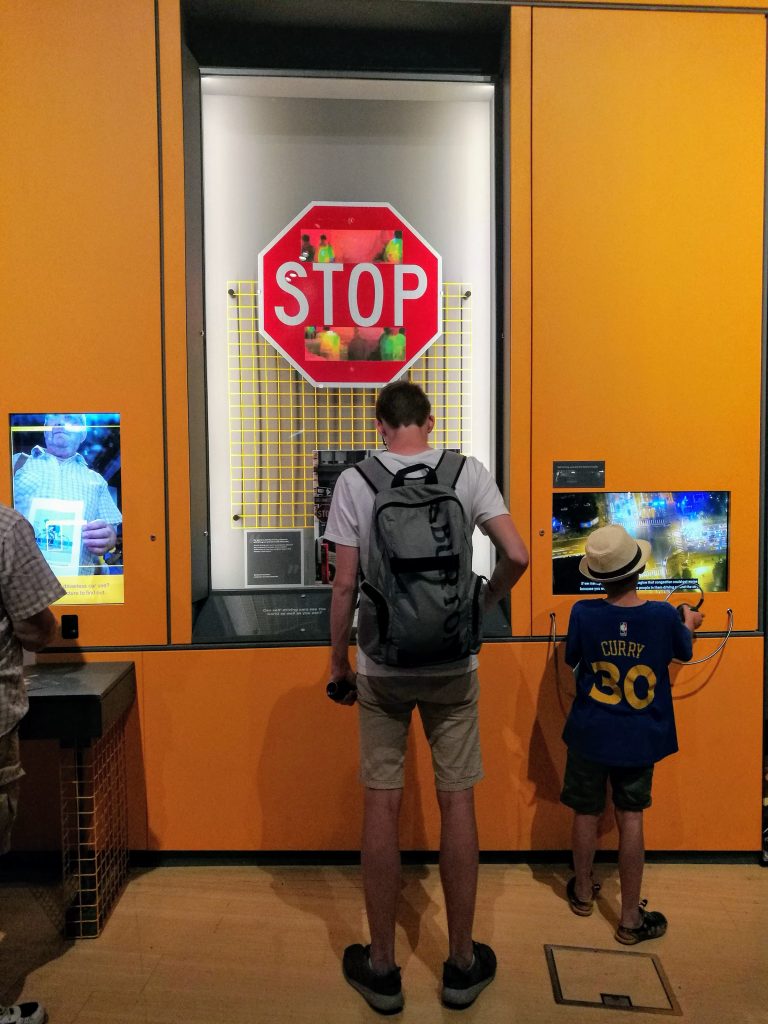
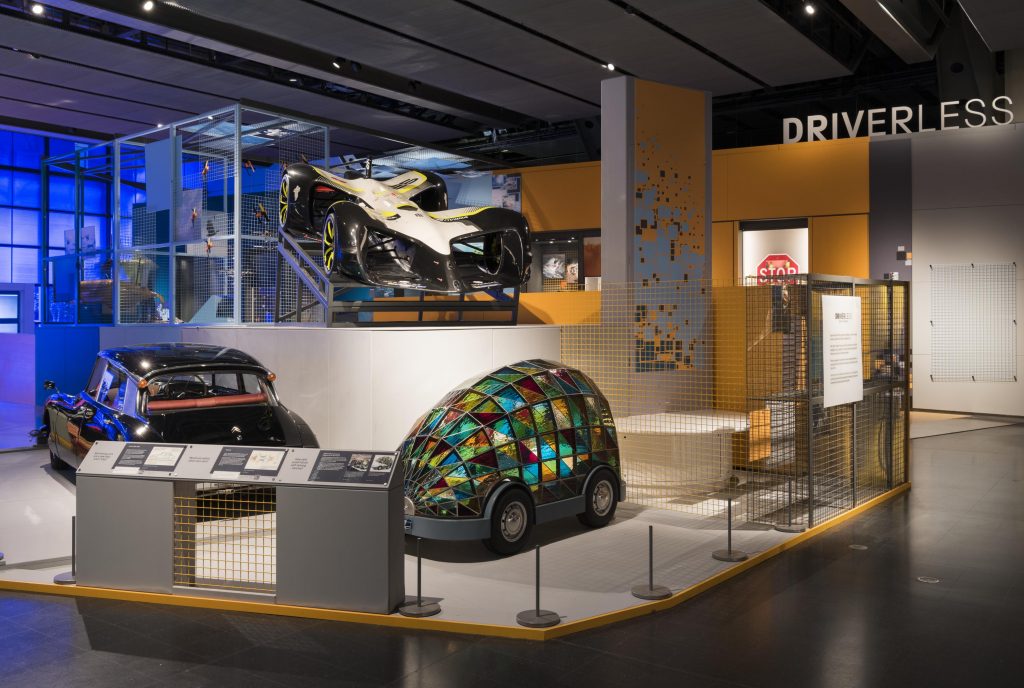
Congratulations to all UW Allen School Security and Privacy Research Lab PhD Graduates — Dr. Camille Cobb, Dr. Kiron Lebeck, Dr. Peter Ney, and Dr. Alex Takakuwa! Congratulations also to graduating Security Lab undergraduate Mitali Palekar, who also won one of the Allen School’s few Outstanding Senior Awards. What an amazing job everyone!
Photos from before and after PhD hooding below. Post-hooding photo order, left to right: Prof. Franzi Roesner, Dr. Kiron Lebeck, Dr. Alex Takakuwa, Dr. Camille Cobb, Dr. Peter Ney, and Prof. Yoshi Kohno.
Congratulations everyone!! And congratulations to all other graduates as well!!
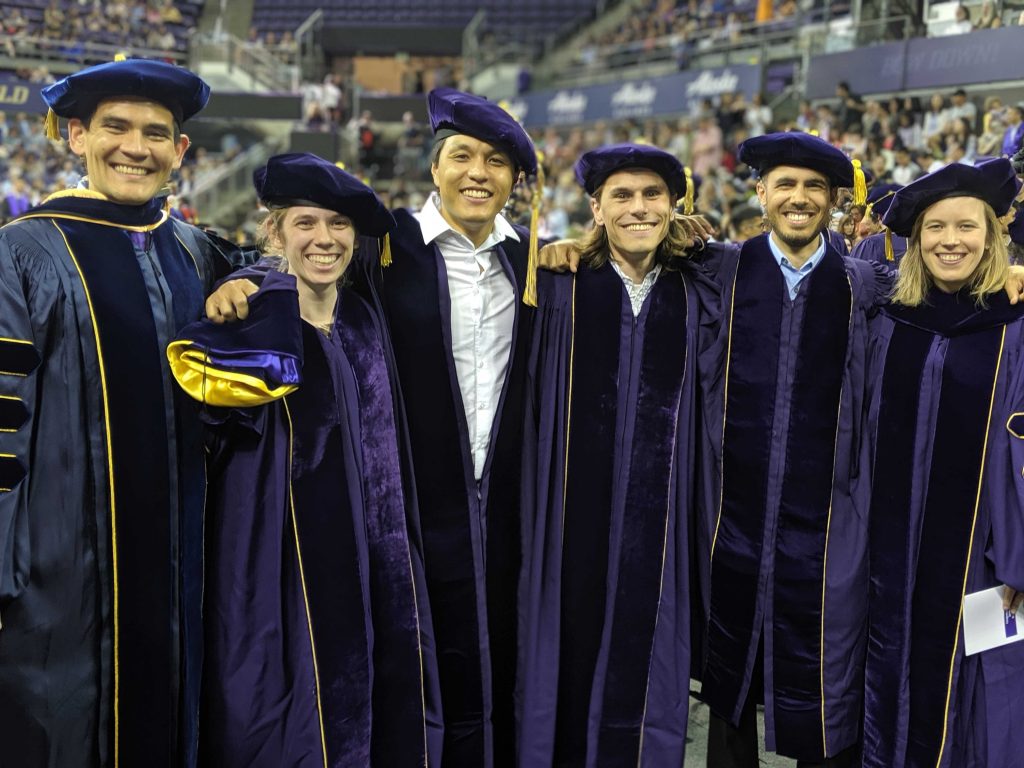
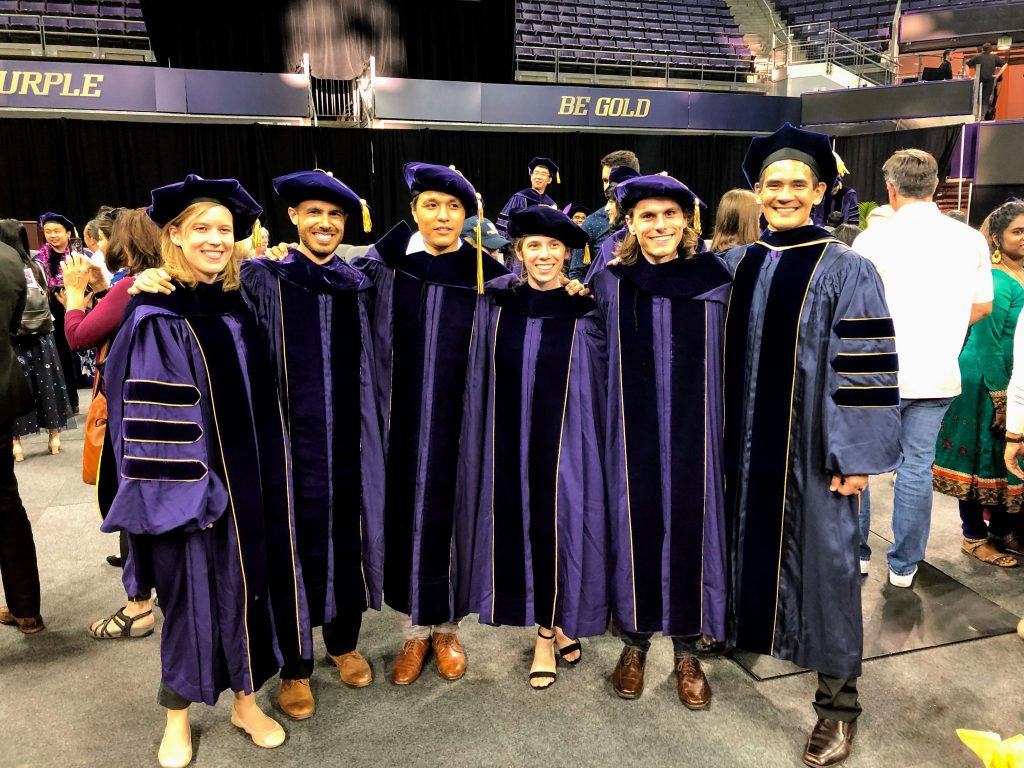
Congratulations to Dr. Alex Takakuwa for successfully defending his PhD dissertation today! Alex’s PhD work focuses on improving various key open challenges in two-factor authentication, and is a result of significant collaboration with Dr. Alexei Czeskis from Google. Alex will continue at UW as a postdoc, incubating a creative new technology idea. Congratulations Dr. Takakuwa!
